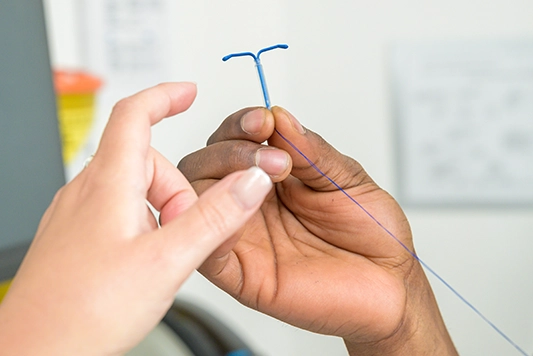World Contraception Day takes place on September 26th every year. The annual worldwide campaign centres around a vision where every pregnancy is wanted. Launched in 2007, WCD’s mission is to improve awareness of contraception and to enable young people to make informed choices on their sexual and reproductive health..
Last week, on social media, we asked for your questions on contraception, and to mark World Contraception Day 2020, MSI UK’s Lead Contraception Nurse, Julia Hogan, has answered them for you. Here are Julia’s answers to six of your most commonly asked questions on all things contraception:
“I keep forgetting to take my combined pill every day, are there any other similar methods I can use?”
Yes! A lot of people that I see in my practice are only aware of the contraceptive pill, as this is the most popular method in the UK, but there are other methods of contraception that use the same hormones as the combined contraceptive pill and are just as effective. You could try either the vaginal ring, which stays inside the vagina for three weeks, or the contraceptive patch, which you replace weekly before having a week without a patch.
However, if you’re really struggling to remember your pill, and think you’d find replacing a patch or vaginal ring inconvenient, you could try a long-acting reversible method (LARC). LARC methods include the implant, injectables, and Intrauterine Contraception (also known as coils). Depending on the brand, injectables protect you against pregnancy for between 8 and 13 weeks, and the implant provides you with continuous protection against pregnancy for 3 years. The coils, depending on which one you choose, can protect against pregnancy for between 3 and 10 years.
“Is there a chance using contraception could affect my fertility if used for a long time?”
No – all the evidence shows that contraception has no effect on your long-term fertility whatsoever, and your fertility will return to normal within two weeks after you stop taking the pill or have an implant or IUD removed. The only method where your fertility can be slow to return after stopping is the injection, as it can take an average of 6 months for fertility to return to normal. While some women get pregnant soon after coming off it, it can take longer than 6 months for your period to return, so other methods are better if you plan to get pregnant soon.
“I’ve heard that the pill can make you gain weight and can cause cancer – is this true?”
There’s no clear evidence that weight gain is associated with the contraceptive pill and taking hormonal contraception can help your body in many ways. Being in control of your fertility can have a positive impact on your mental health, as well as physical benefits such as regulating your bleeding, reducing period cramps, and improving your skin. The combined hormonal pill can also help women going through the menopause, or experiencing peri-menopausal symptoms, by reducing side effects such as hot flushes. There’s also evidence that it can help protect against bone loss (a side effect of the menopause caused by the drop in oestrogen levels) up until the age of 50.
In regards to cancer risk, there are some studies that indicate a very small increased risk for women taking the contraceptive pill for cervical and breast cancer, but this risk declines over time once women have stopped taking it. There are also studies that show that women taking the pill have a reduced risk of developing ovarian, colorectal and endometrial cancers.
Read the full blog at this link: Q&A: Answering your questions on contraception
You can read more about:











































